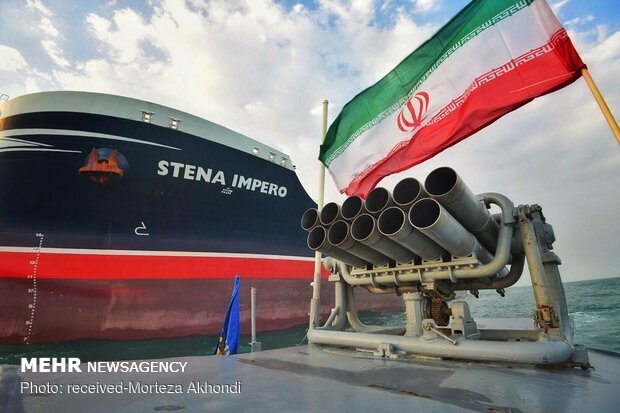The different reactions of Arab governments and nations toward the seizure UK tanker

TEHRAN - On Friday, a British oil tanker was seized in the Strait of Hormuz by the Islamic Revolution Guards Corps (IRGC). The tanker was seized due to violation of maritime laws, causing marine pollution and endangering other vessels.
The interesting point here is the huge gap between the Arab government and Arab nations in their reaction to this incident. This gap can also be seen in other important issues in the Middle East, such as the fate of Palestine.
Arab nations have always proved that they are wide aware of foreign issues and their opinions are far more progressive than those of their governments. Up to now, they have held several protests to announce their opposition toward government policies especially toward Palestine and have voiced their disagreement toward plans to normalize relationships with the Zionist regime.
Over the years, Arab governments and the media that are linked to them have launched extensive advertisements to defend governmental policies; a very good example is Al Arabiya news that is attached to Saudi Arabia government; however, despite all these advertisements, Arab nations have never been influenced by these propagandas and have showed their opposition.
For instance, Arab nations have showed their opposition toward the American plan for displacement of Palestinians called “the deal of the century” or efforts to normalize relations between Arab countries and the Zionist regime.
A new example is the seizure of British oil tanker in the Persian Gulf.
In reaction to the seizure, Most Arab governments have expressed their concerns about rising tensions in the Persian Gulf and have said that Iran’s act was “hostile.”
Adel al-Jubeir, Saudi Minister of State for Foreign Affairs said in Twitter: “attack on the freedom of maritime navigation is a violation of international law".
Bahrain Ministry of Foreign Affairs also said that it “strongly condemned” Iran’s seizure of the British oil tanker and urged Iran to stop its “irresponsible” acts.
Some other Arab countries also voiced similar concerns.
However, tweets of these countries’ residents show an opposite view about the subject.
One of the tweets says: “whatever happens in the Strait of Hormuz is planned by American and Israeli intelligence services. They just want to drag Arab countries into the conflict under the pretext of protecting oil tankers and water channels, so that they [the west] can take control over the region and swindle money out of the Arab oil-exporting countries.”
In response to Al Arabiya, another twitter user said, “Did you respect international laws when you seized the Iranian oil tanker in Gibraltar? So this is just about bullying other countries, not about respecting the law.”
Another user wrote: “they keep accusing Iran for every incident in the Middle East or attacking Saudi Arabia facilities, in order to push Arab countries into a war with Iran.”
“Europe was trying to be the good cup after the United States abandoned the nuclear deal with Iran, but the emergence of Iranian oil tanker in Gibraltar was a smart move; Europe was checkmated and had to reveal its true colors and everyone saw that it was the bad cup after all,” says another user.
Another user published a picture of Sayyed Hassan Nasrallah the Secretary-General of Hezbollah and wrote: “the resistance struck the evil side twice over the last few days. Seizure of the British oil tanker put a smile on Sayyed’s face.”
In conclusion, we should not assume that Arab Nations have the same view as their government toward issues in the region, especially those in concern with Iran.
Arab nations have always admired Iran’s military power and its active role in the region and regretted that their own governments are firmly dependent on Western countries and are getting more attached to them every day.
Leave a Comment